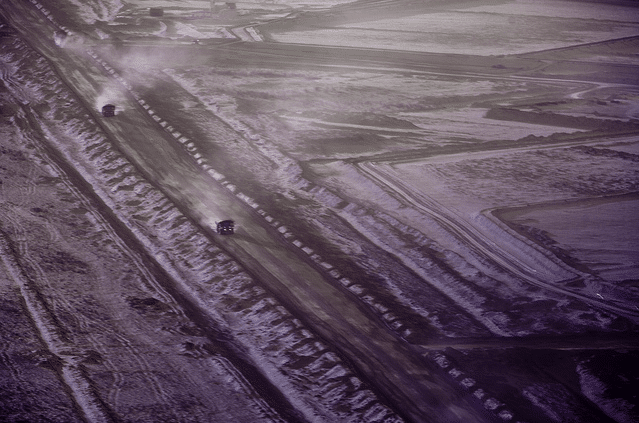As the controversy surrounding Canada’s proposed wolf cull in Alberta grows, the provincial government is attempting to limit criticism directed at the country’s polluting Tar Sands – the prime driver behind the region’s rapid decline in caribou populations. Alberta’s Ministry of Sustainable Resource Development (SRD) is the government body responsible for, not surprisingly, sustainable management of the province’s natural resources, but interestingly SRD lumps disparate things – like caribou and bitumen – together.
As public concern increases over the SRD’s mismanagement of Alberta’s caribou herds (10 of the 13 monitored herds are experiencing decline), government spokespeople have had to work overtime to conceal the role the Tar Sands have to play in this enduring resource debacle.
DeSmogBlog has covered the extensive government-industry collusion behind Alberta’s botched caribou recovery strategies, demonstrating the extent to which the entire process is dominated by a single economic imperative – oil and gas development in, most notably, the Tar Sands. The government, however, has downplayed the role the Tar Sands have to play in the mass disappearance of Alberta’s caribou, choosing instead to place the blame squarely on the wolf.

A very cautious word choice. The point is, however, that a wolf cull is underway, just not directly within the designated Tar Sands regions. A further point would be that a provincial cull – one that stretches to caribou habitat in the Tar Sands region – is currently being proposed.
“The recovery program really has been going on for more than 30 years. In fact, one of the first stories I did in Alberta was about 30 years ago, about an aerial survey of the Grand Cache/Jasper area with a biologist who said, ‘unless we do something soon we’re going to loose these babies.’ And that story’s been continuously repeating itself over and over – except the situation is getting worse, sort of like a domino effect: its that herd and then another herd and then another herd,” Struzik told DeSmog.
“The only thing they have done is initiate a wolf cull which is really just a stop gap measure to stop the bleeding. Its not a solution to the problem. Its perhaps – according to some scientists – one of the solutions but its not the long term solution. That’s all they seem to be doing right now – is to cull wolves to try to protect caribou, at least in the Grand Cache area, and now there’s talk of expanding that cull to other areas so we may actually see an expansion of that program very early down the road,” Struzik said.
“It was caribou that were never really part of the management equation as the oil sands – and not just oil sands, but all energy development and forestry development – expanded in this province. Caribou were the kind of inconvenient truth, for lack of a better term, that nobody really wanted to deal with.”
“I am a journalist and therefore I am not in a position to take sides or influence public policy. That’s for society to decide. So far though, there has never been a very strong outcry to stop this. Until that happens, then caribou and wolves will continue to be an inconvenient truth. I would also say that there are signs that industry does want to deal with this. But until someone takes the lead, be it government or industry, I suspect the status quo will prevail.”
Subscribe to our newsletter
Stay up to date with DeSmog news and alerts







